Whadda Day! June 13, 2021
It’s the first day of GAC 2021. Cabin 28 kicks off Whadda Day!
Podcast: Play in new window | Download

It’s the first day of GAC 2021. Cabin 28 kicks off Whadda Day!
Podcast: Play in new window | Download
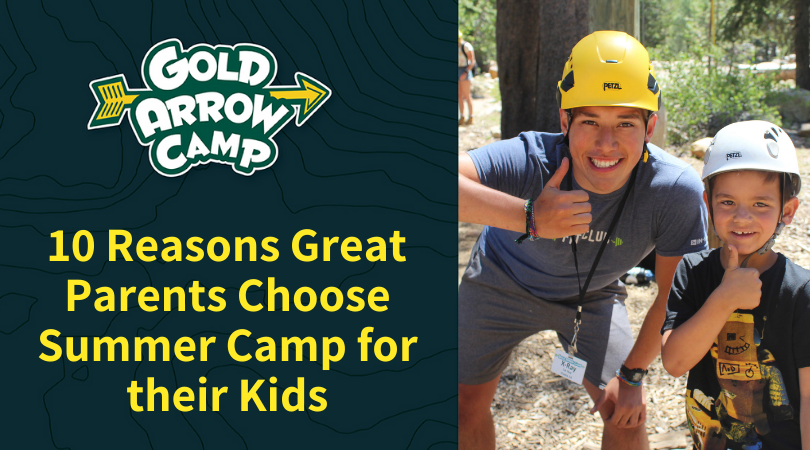
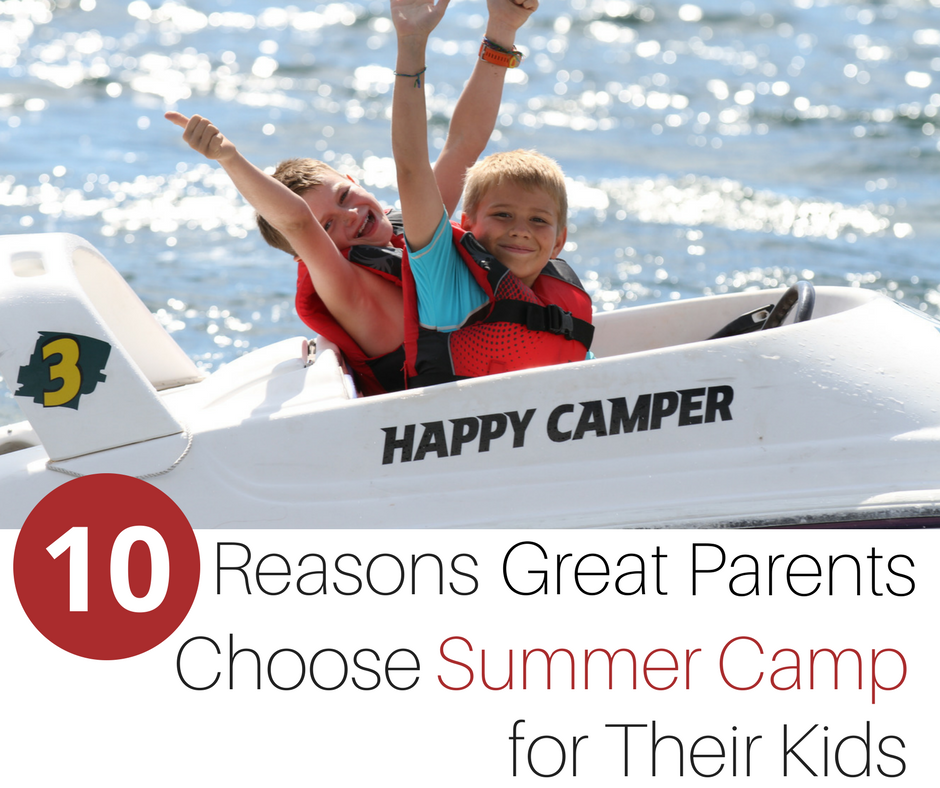
My shy, quiet nine-year-old went to camp not knowing a soul. Two weeks later, she came home transformed. She blossomed. She made friends, learned a multitude of activities, felt safe, loved, confident, and happy — really, really happy. As hard as it was on me, it was all worth it for her. It was the single best thing I have ever done for her.
-First-time camp parent
Is your kid going to camp this summer? Congratulations! You’re giving them an experience that may have many life-long, positive benefits. You are giving them the opportunity to grow and develop skills and character traits that are often hard to develop in the comforts of home.
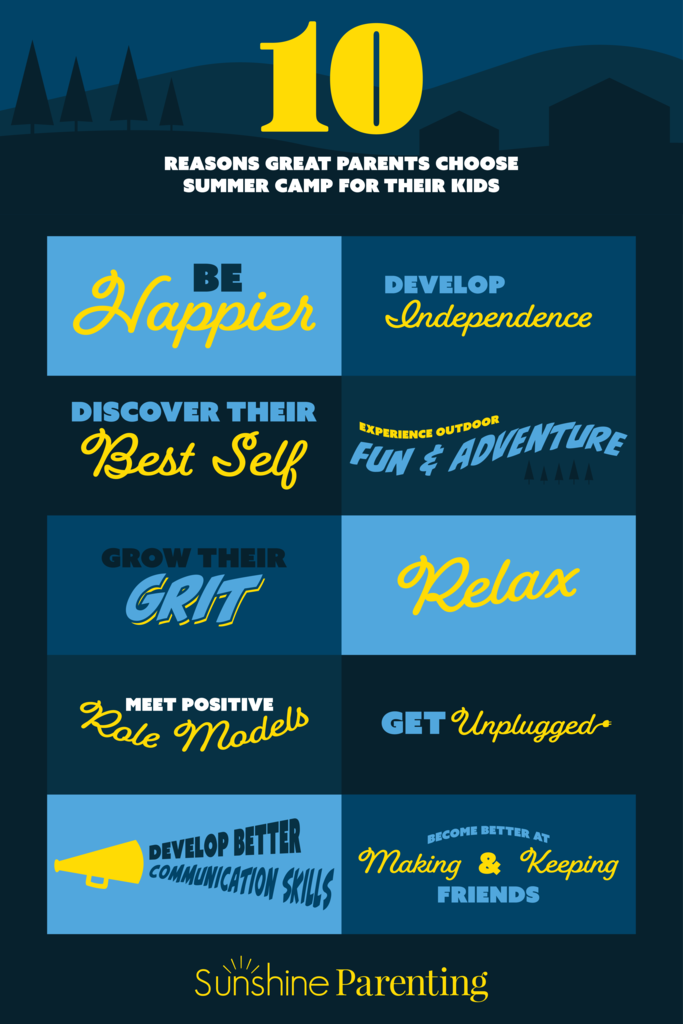
Let this list remind you about some of the many reasons why you are being a great parent by sending your child to camp this summer!
Camp makes me happy and nothing can prepare me for life as well as this environment.
“Come on,” you’re thinking, “How can two weeks in the mountains change my child’s overall happiness level?” Good question. In research I conducted a few years ago, one of the things that both parents and kids agreed was that children feel happier after being at camp. The combination of positive emotions, deep friendships, being disconnected from technology, and just plain fun makes kids feel happier at and after camp. I’ve previously written about how the science of positive psychology may explain why kids flourish at camp and demonstrate increased happiness levels during and after their camp experience. In this era, when we’re seeing our kids suffer from rising rates of depression and anxiety, isn’t it nice to know that there’s a place where kids can go that actually serves as a positive intervention for overall happiness?
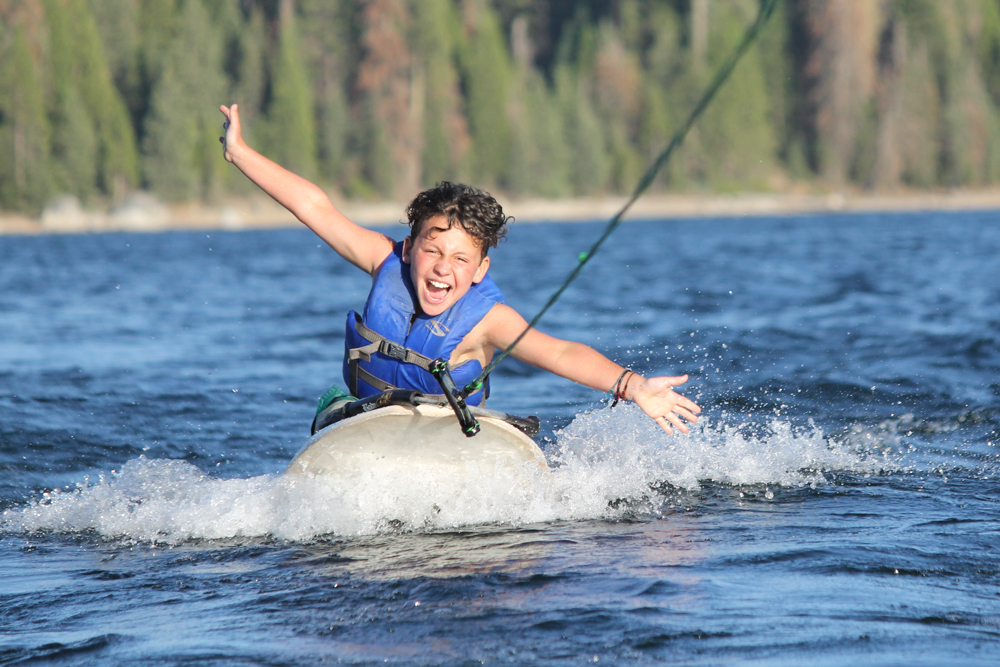 #2 DISCOVER THEIR BEST SELF
#2 DISCOVER THEIR BEST SELFBeing at camp gives me this sense of belonging that I’ve never felt anywhere else.
In many different ways, but all with the same underlying meaning, campers describe camp as a place where they can be themselves. They feel open to saying and being who they really are, not stuck conforming to what’s considered “cool” and “acceptable” in the outside world. Surrounded by a diverse group of friends of different ages and backgrounds, kids develop the ability to explore their own interests and express their own thoughts better.
As a parent, I hate to admit that I sometimes push my own interests on my kids, even when I don’t mean to. For example, I might say, “You’re so good at softball! Don’t you want to keep playing?” when my child says she doesn’t want to play anymore. When kids step away from their regular activities and normal life schedules (as well as their well-meaning but often overly directive parents), they have the opportunity to think through what’s really important to them as individuals.
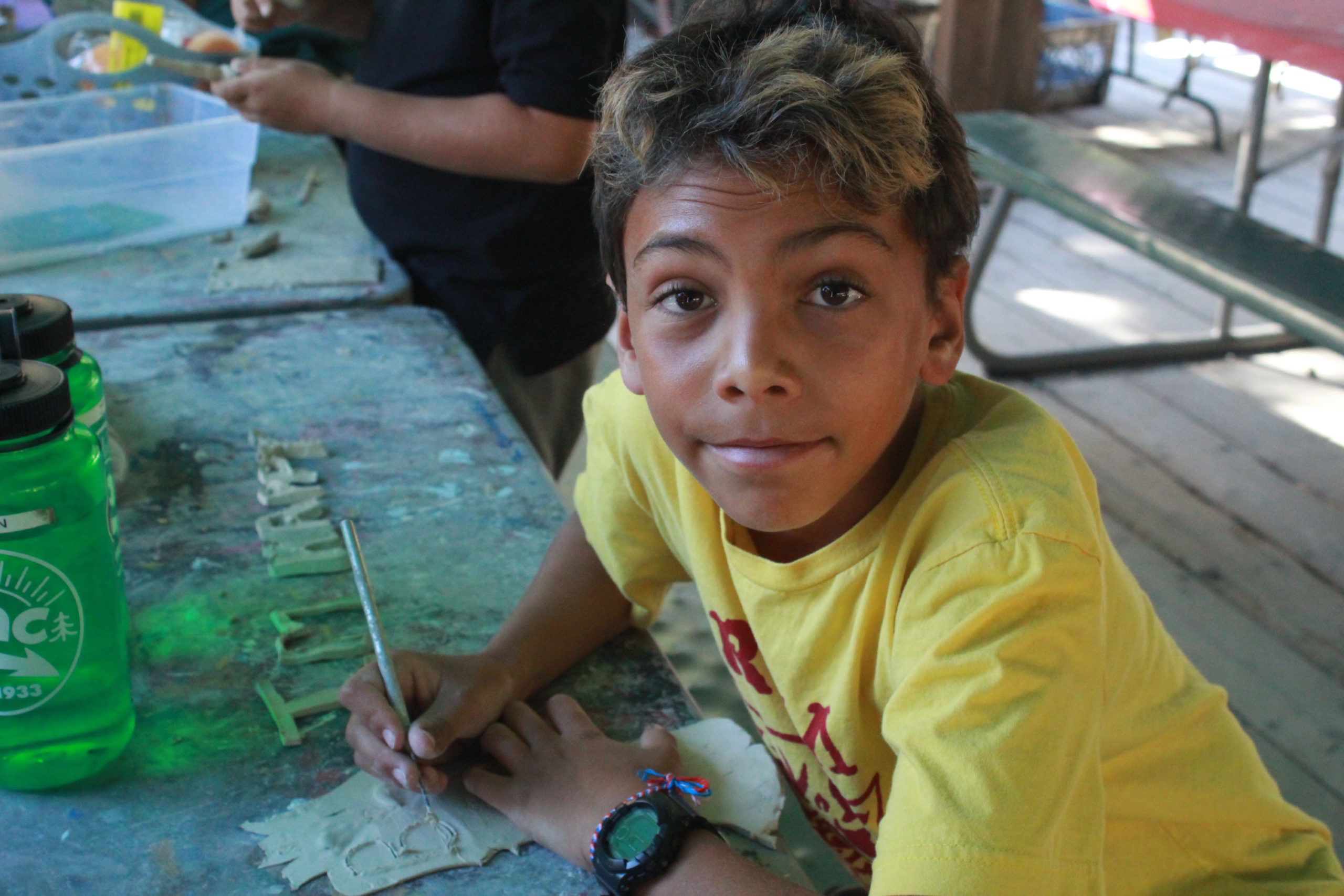 #3 GROW THEIR GRIT
#3 GROW THEIR GRITThe counselors challenged me to do things I wouldn’t normally do at home.
Learning self-reliance, experiencing mistakes and failures, and reaching for goals are all camp experiences that help campers develop their grit, an important character trait that we’ve learned is critical to success in life. Camp offers a unique experience to children – the chance to be away from their parents for a short period of time and learn to handle more things on their own. Without parents to step in and assist, or rescue from mistakes, kids develop confidence in their own ability to make decisions and solve problems. Just being “on their own” is a huge confidence builder for kids, and they feel more self-reliant after being responsible for themselves and their belongings for a few weeks.
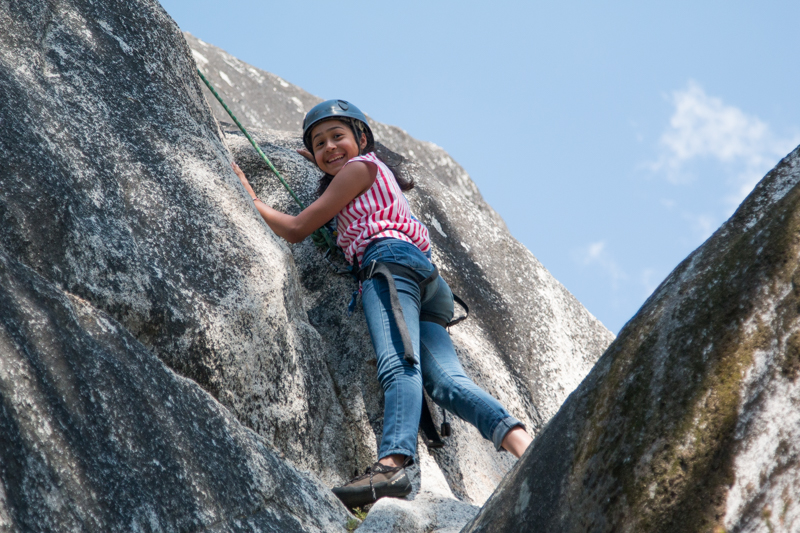 #4 MEET POSITIVE ROLE MODELS
#4 MEET POSITIVE ROLE MODELSCamp has made me into a leader, having the best role models as my counselors to look up to.
One of the best things that happens at camp is that kids get exposed to a different kind of adult role model than what they see in the media. No reality TV stars will be gracing the waterfront or backpacking trips at summer camp. No perfectly coiffed and stick-thin model will be standing next to them brushing teeth in the bathroom. No macho guy who speaks disrespectfully about women will be leading the campfire discussion. In fact, the college students who choose to spend their summer working at camp are an outstanding bunch of young adults. Most are stellar students with outstanding leadership skills. They love the outdoors and working with kids, and they are the kind of people we want our kids to emulate. They love leading discussions on topics that are important to their campers and helping them build confidence. There’s no focus on appearance at summer camp, and so designer clothes, makeup, and trendy hair-styles don’t hold the same importance that they do at junior high or high school. In fact, the predominant style at camp is pajama pants paired with dirt and sweat-stained t-shirts. And we hardly ever spend time in front of a mirror.
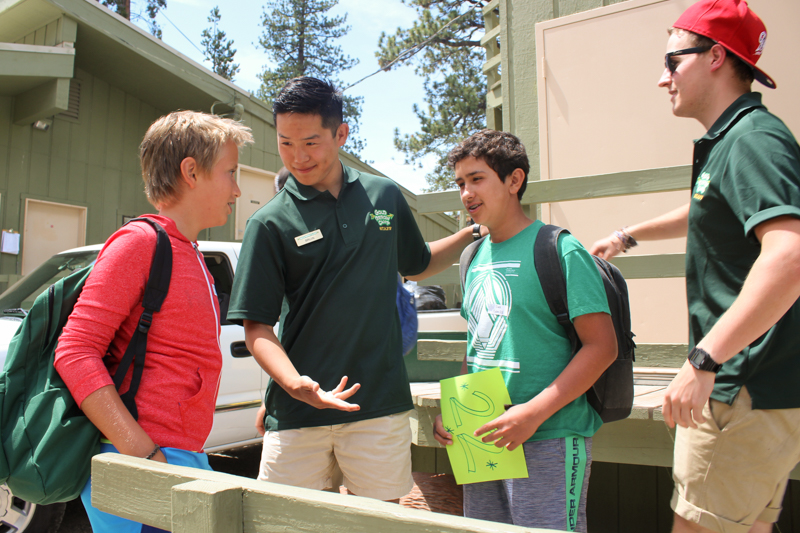 #5 DEVELOP BETTER COMMUNICATION SKILLS
#5 DEVELOP BETTER COMMUNICATION SKILLSThe other part of camp that has influenced me the most is the simple idea of trying to always smile.
In post-camp surveys, campers consistently write about how ditching their electronics was one of the best things about their camp experience. In fact, it’s a practice they take home with them, setting aside phones during meals with friends so they can connect more genuinely, face-to-face. In the absence of technological tethers, campers have many hours each day to practice these face-to-face communication skills. They learn the importance of things like eye contact, smiles, and body language as they positively interact with their peers. Counselors help facilitate lively discussions, and campers learn to ask each other questions, listen more carefully, and figure out common interests. Kids learn and practice valuable communication skills at camp, which they can use throughout their lives.
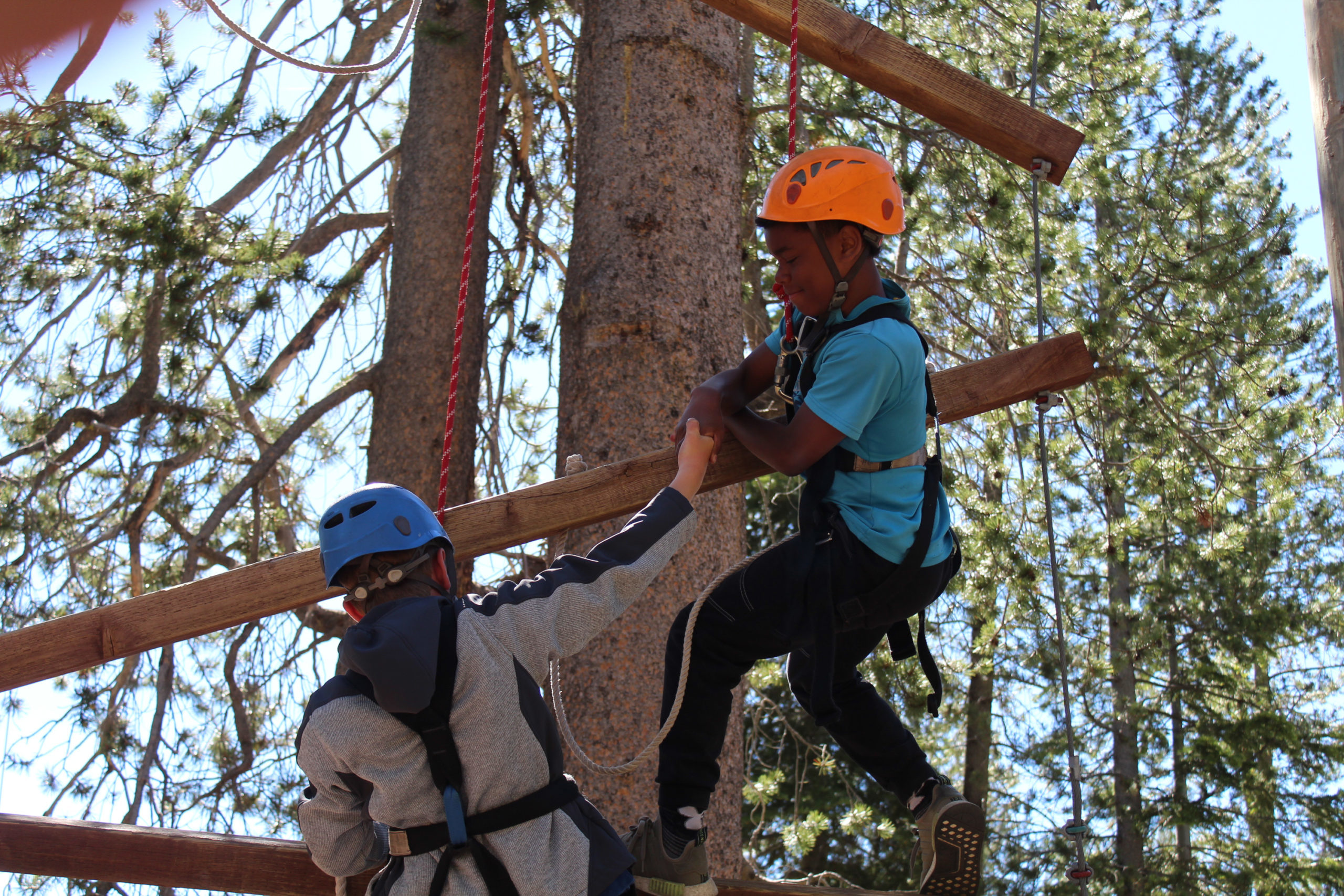 #6 DEVELOP INDEPENDENCE
#6 DEVELOP INDEPENDENCEGoing to camp has made me even more independent and a much better people-person. I am able to go confidently up to someone and introduce myself, or hang out with someone new because of my time at camp.
You are giving your child the opportunity to live and thrive without being with you and under your constant scrutiny. The growth in confidence and independence happen at camp BECAUSE you are not there. Read more about why camp experiences help kids develop independence in Parking Your Helicopter.
 #7 EXPERIENCE OUTDOOR CHILDHOOD FUN & ADVENTURE
#7 EXPERIENCE OUTDOOR CHILDHOOD FUN & ADVENTUREI have so many fond memories of camp that I can’t choose a particular one. However, some of my favorites memories include sleeping under the stars, doing fun activities, and spending time with friends.
You are giving your child the gift of magical childhood memories – dirt, adventure, story, and joke-filled days and nights spent with friends outdoors, under the stars, and around the campfire. These childhood memories will last forever. And, as Michael Thompson, PhD, so eloquently states, “Our sweetest childhood memories do not include adults.”
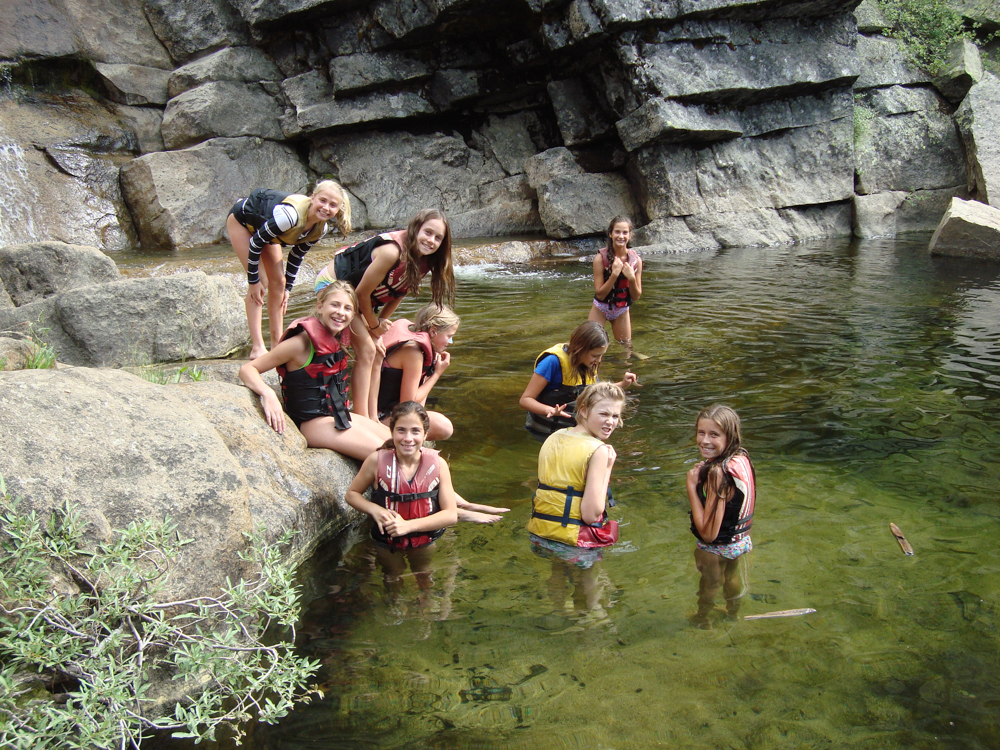 #8 RELAX
#8 RELAXThe atmosphere is so relaxed.
You are giving your child a break from the pressures and stress of competitive sports, school, and you. Forgive me if that offends, but I, too, am a well-meaning but over-involved parent who provides just a bit too much advice, feedback, and guidance to my children. Our kids need a break from our well-intentioned involvement in their lives.
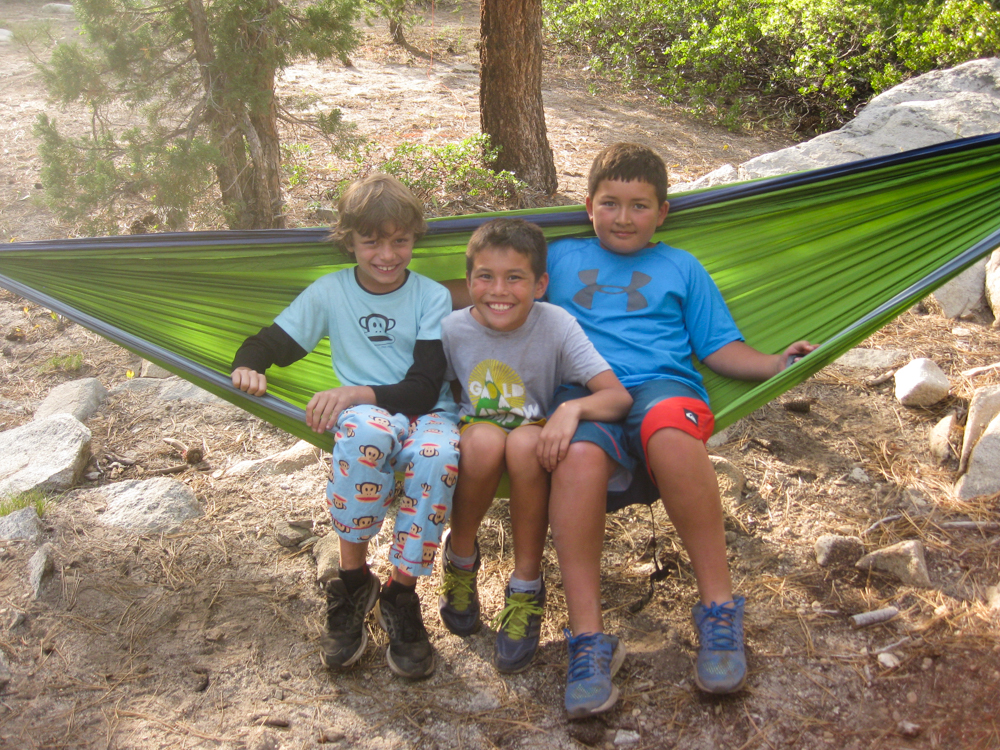 #9 GET UNPLUGGED
#9 GET UNPLUGGEDCamp has helped me appreciate nature and the outdoors a lot more than I think I would have if I didn’t go. I can go without my phone or connection to social media awhile, because camp has shown me that amazing stuff happens when you put your phone down and have a nice conversation with someone.
You are giving your child the chance to unplug and connect face-to-face with other kids and positive young adult role models.
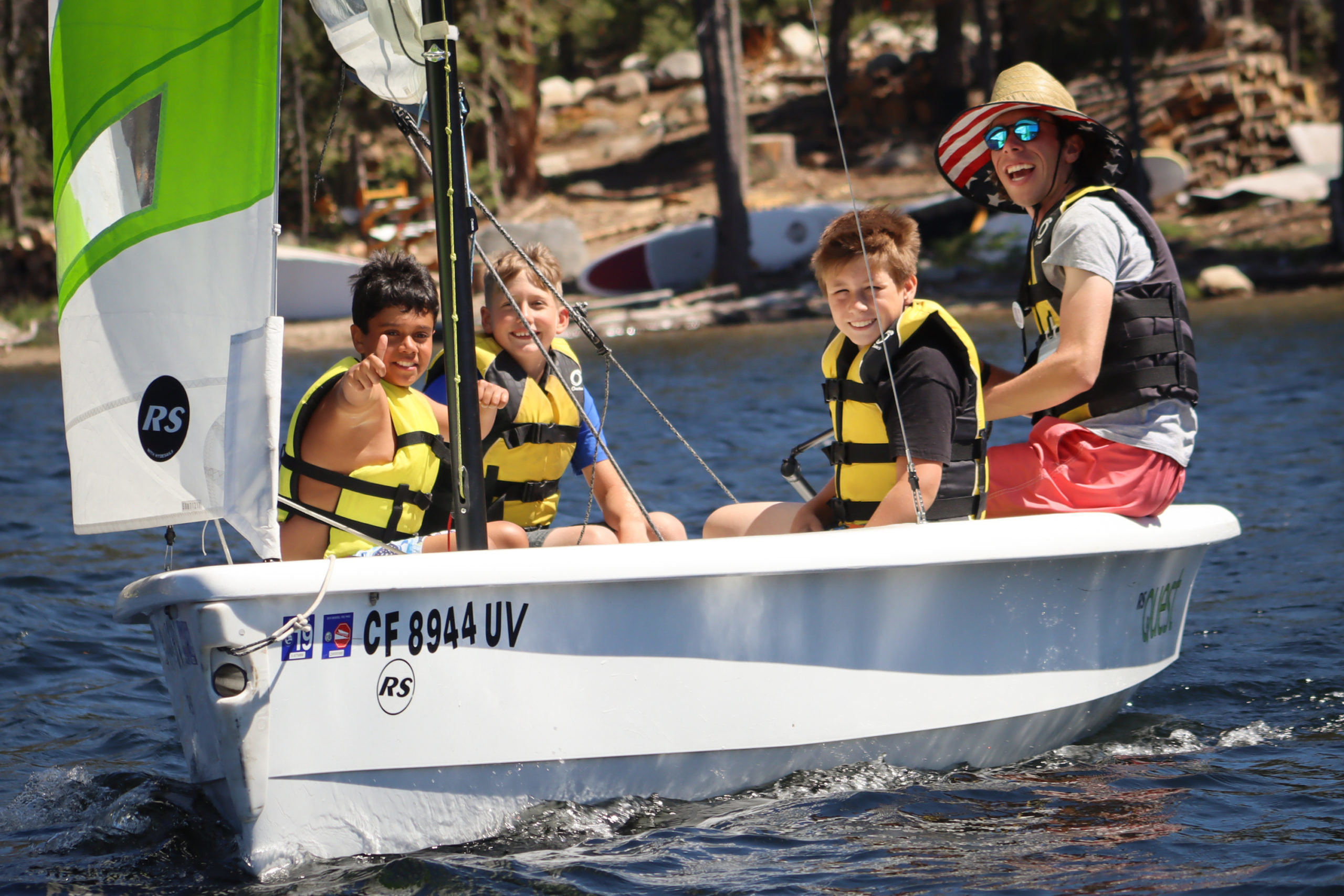 #10 BECOME BETTER AT MAKING AND KEEPING FRIENDS
#10 BECOME BETTER AT MAKING AND KEEPING FRIENDSI feel like I have become a kinder person and am better at making friends because of camp.
The bonding and friendships that happen at camp are different from those that occur at school and on sports teams. The intensity of living together and experiencing life together, without distractions, creates the ideal setting to form life-long friendships and really get to know people well. Read more about camp friendships.
So, if people ever question your decision to send your young child to a traditional, longer camp stay this summer, let them know that it’s hard for you to let your child go, but that you’re giving your child a gift that will have more impact than any material item you’ve ever given.
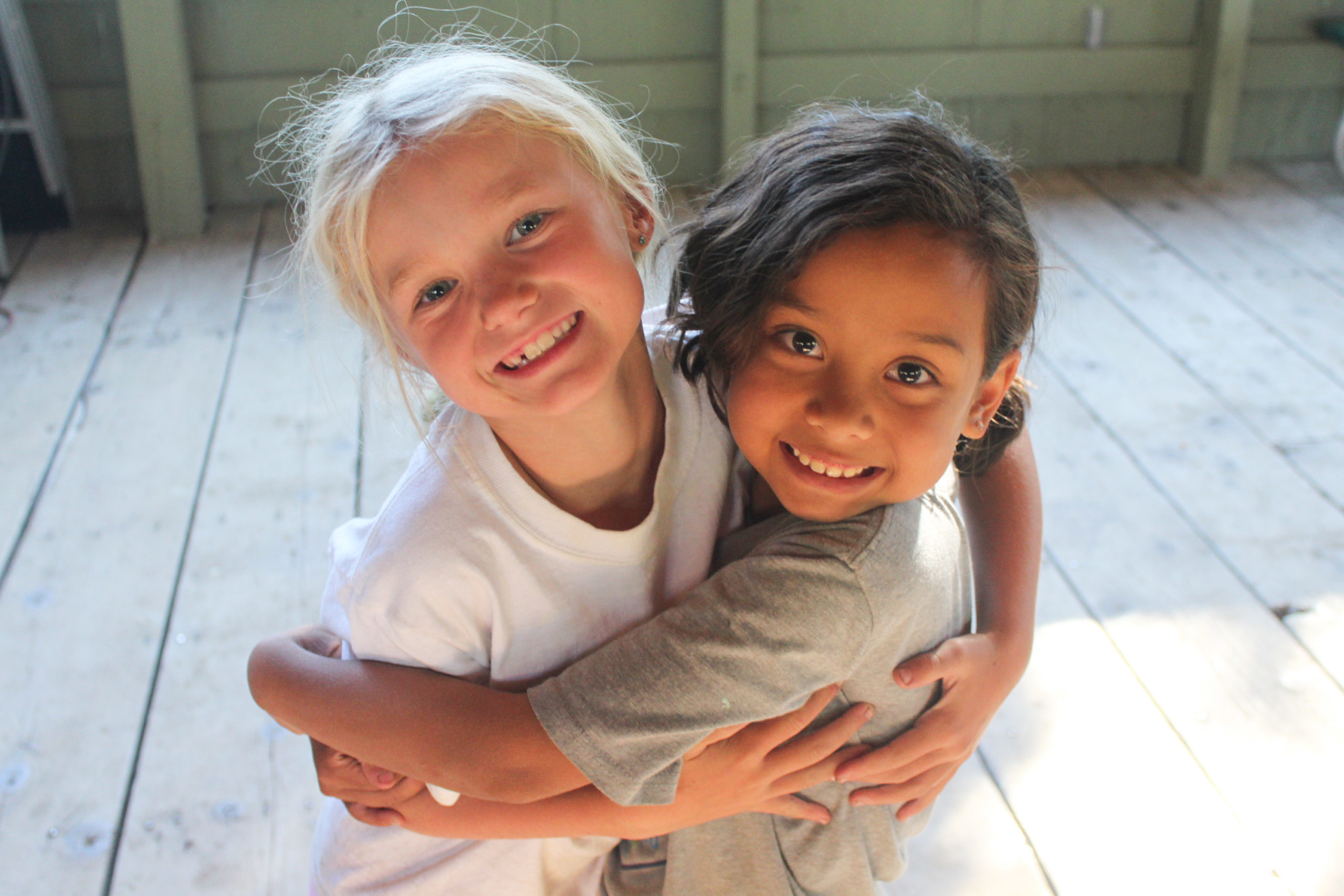
There you have it! Ten of the reasons that great parents send their kids to camp! Don’t you feel good about your decision?
Check out the Sunshine Parenting Podcast for TONS of resources and interviews about summer camp, parenting, and raising thriving kids!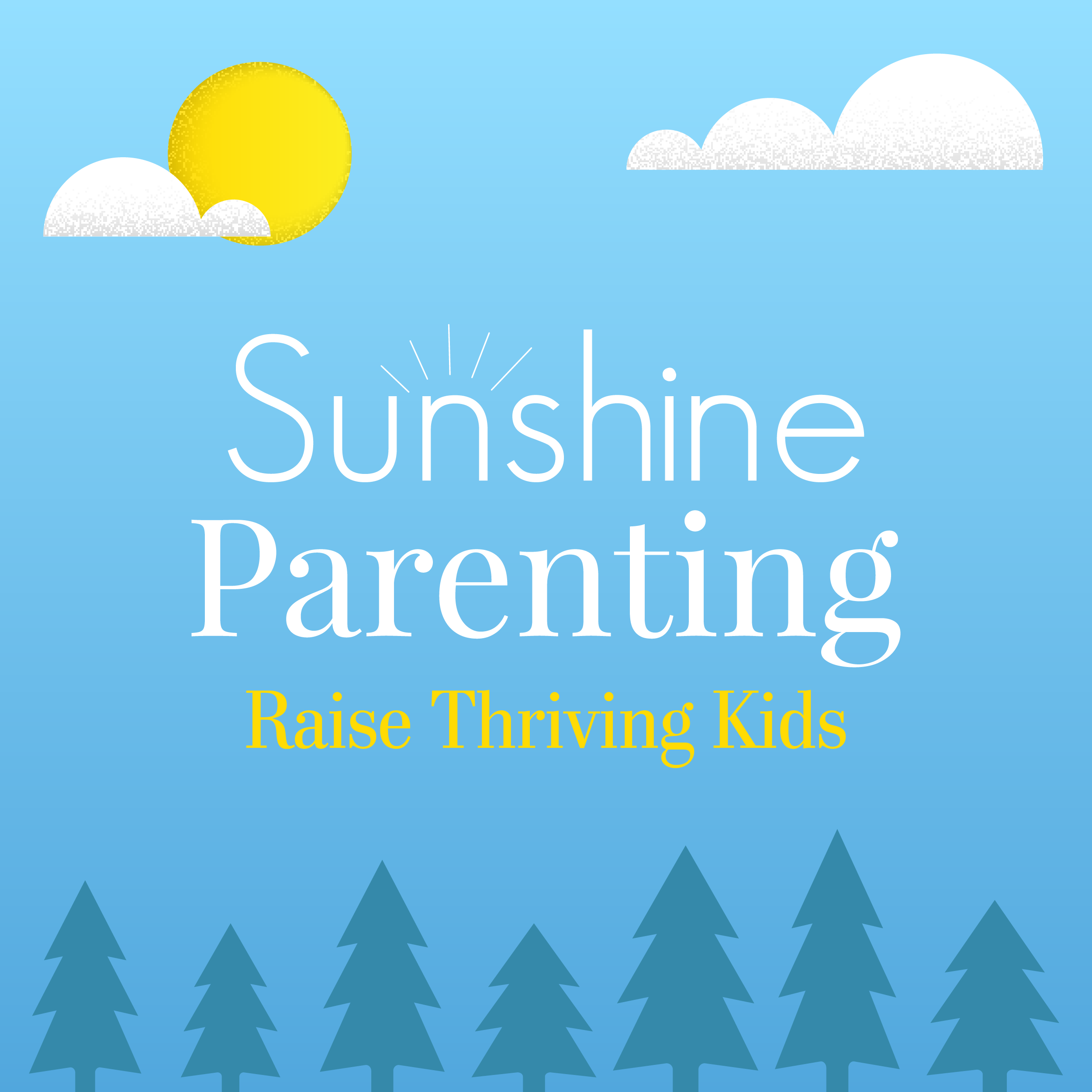
Article originally published at Sunshine Parenting.

Audrey “Sunshine” Monke, MA, has been the owner of Gold Arrow Camp since 1989 and currently serves as the Chief Visionary Officer. In addition to her vision-casting and mentoring at GAC, Sunshine is an author (Happy Campers: 9 Summer Camp Secrets for Raising Kids Who Become Thriving Adults), podcast host, speaker and coach on the topics of parenting, social skills, and happiness. Find out more at her website, Sunshine Parenting.
https://www.cdc.gov/childrensmentalhealth/features/anxiety-depression-children.html